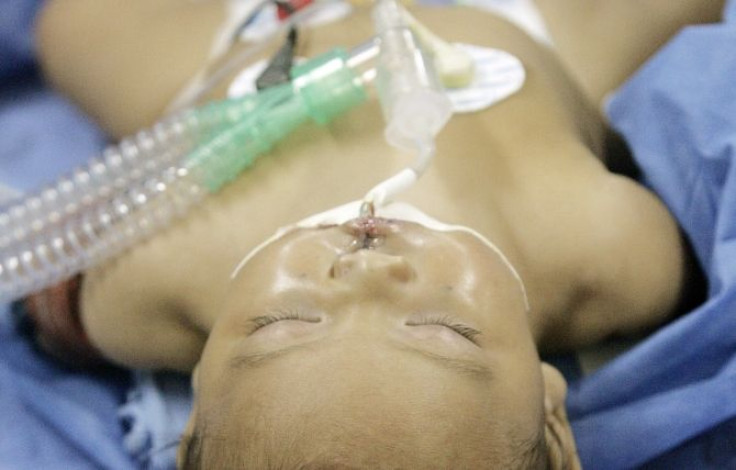Your Lungs View Ventilators as a Threat Causing a Defensive Reaction

Lungs see the ventilators (a lifesaving machine) as an enemy, a new study says. The cells in lungs respond to this enemy by building proteins that'll help the body defend itself.
Ventilators are mechanical devices that help patient's breath in critical care units. Researchers have found that this life-saving device can be seen as the enemy, resulting in the body defending itself by releasing compounds that increase inflammation.
"We showed that these cells respond to a mechanical force, pressure, as if it were an inflammatory stimulus. They almost perceive it as a bacterial toxin - and they don't like it…," said Samir Ghadiali, associate professor of biomedical engineering at Ohio State and co-lead author of the study in a statement.
Researchers have known that infection occurs in the lungs when people are kept on ventilators. What cause this infection was however, not clear.
"This work suggests that there may be a ubiquitous inflammatory mechanism that cells have to respond to anything they perceive as a danger. At least in the lung, we now know the innate immunity pathway plays an important role, and this study showed that a mechanical force gets converted into cytokine production through this well-known pathway," Ghadiali said.
Researchers conducted tests on human airway cells, that are most affected by the air pressure. They found that the cells began an inflammatory response after being exposed to just 4 hours of ventilation pressure.
"The cells keep secreting compounds to recruit the immune system to fight an infection, but there is no infection. It's a response we don't want," Ghadiali said.
Treating an Overactive Immune Response
"We didn't know until this study how we could possibly turn off that type of mechanically induced inflammation. Essentially what we found are two things that may help: microRNAs and two TLRs in the innate immunity pathway," said Ghadiali
According to the researchers, miR-146a- a type of micro RNA- can be used as a target to reduce this kind of immune response in the lungs. Increasing levels of miR-146a when the patient is kept on a ventilator can reduce the immune response and reduce infection.
Essentially micro-RNA's are a type of genetic material that help in building proteins but when these micro-RNAs are over expressed ,the protein is no longer built thus shutting down the immune response.
"So we have a microRNA that we can over express that targets the innate immunity pathway and shuts down mechanically induced inflammation," Ghadiali said.
The study was published in the Journal of the Federation of American Societies for Experimental Biology.



























